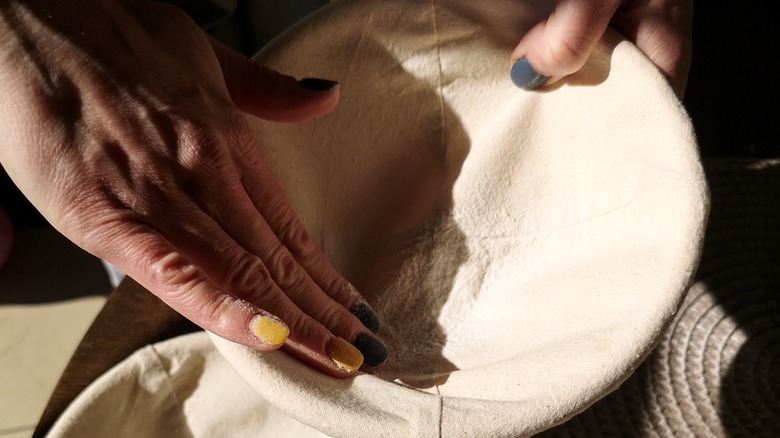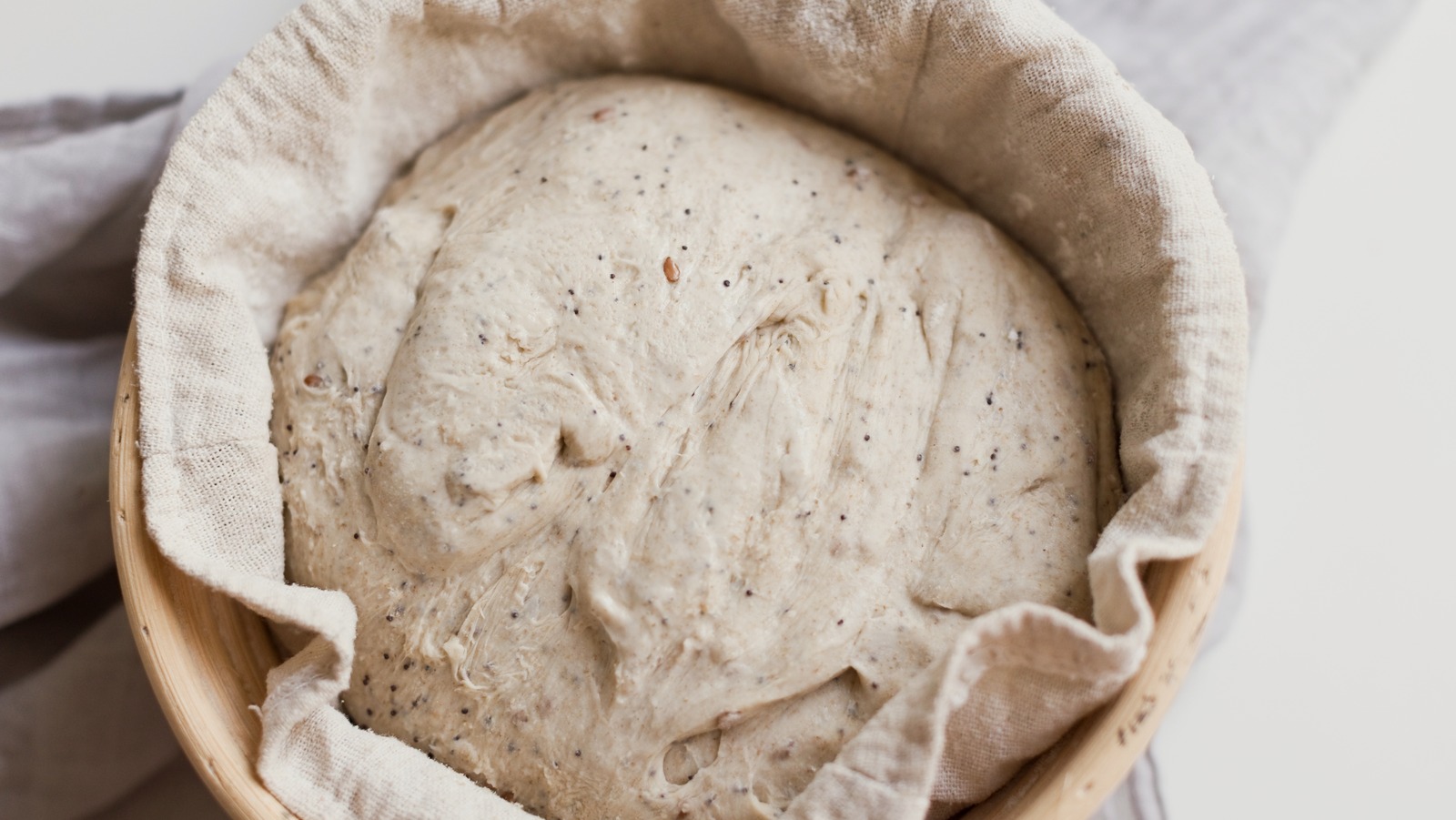If you’ve been baking bread long enough you’ve probably either already purchased a banneton, or you’re considering buying one, and that means you need to know how to care for it. Bannetons are proofing baskets that come in a variety of shapes and are usually made out of rattan, although they can also be made from plastic or other wood products. They are loved by bread bakers for their ability to shape dough as it rises and produce a beautiful crust with the ring design imprinted. But because bannetons are made from natural materials that can have adverse reactions to the substances they come in contact with, they require a little extra consideration and care. One way to protect a banneton is to use a cloth liner, which makes removing the unbaked loaf easier and helps keep sticky dough from clinging to the basket.
Banneton liners are usually made of cotton cloth material, and if they don’t have any wet dough sticking to them they don’t actually need to be washed after every use. In that case you can just knock out the loose flour from your liner, then leave it to sit and let it fully dry before storing so that it doesn’t develop mold. If there is still too much excess flour left you can also lightly scour the liner with a brush to loosen it from the fabric.
Proper care for your banneton liner can make cleaning easier

If your banneton liner has too much wet dough on it or has gotten dirty in some other way, like a spill, drape it over a colander and rinse it with warm water. You can also use a brush here if you need to get some stubborn pieces off. Unlike cleaning the banneton itself, it is okay to use soap to handwash your liner, but only use a small amount and don’t bother unless it’s for a really stubborn stain. Let your wet liner air out in a sunny spot and make sure it’s fully dry before storing it.
To prevent the need to clean your liner too often, you’ll want to make sure you are prepping it properly, which will keep dough from sticking to it in the first place. Liners should always be dusted with adequate flour before you place your loaf in the banneton. It also helps to manually rub the flour into the liner by hand, which will help make the cloth a more solid non-stick surface and will make sure you don’t miss any spots. Take care of your liner from the start and it will require a lot less cleaning in the future.







